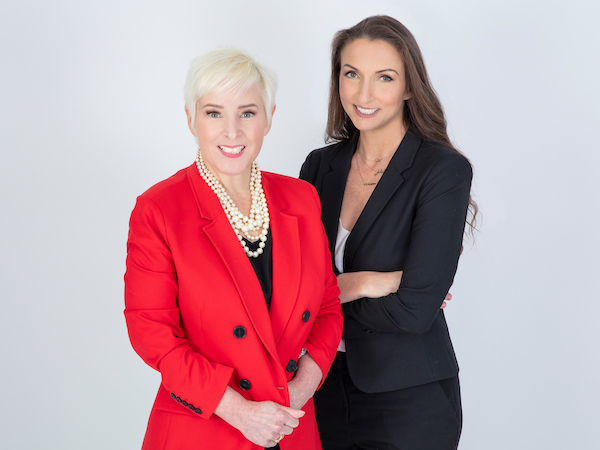Like many of her lawyer colleagues, Beth Prince was apprehensive about how her profession would continue, let alone adapt, when the country shut down to battle COVID-19 in March 2020.
A year later, the answer for Prince’s divorce and family law firm has been much more positive than she and her peers expected.
“This is a seismic shift in how we do business, but it’s really been a blessing in a lot of ways,” Prince said. “Our clients and the courts adapted to technology, and I think there is a lot of learning that will continue long after we’re more back to normal in the law profession.”
The U.S. legal system has operated for a century as an in-person process. Local, state and federal courts were among the first to close their buildings and postpone in-person proceedings.
“If you give folks a choice between broccoli and ice cream, the outcome is predictable,” she said. “There was no choice here. It was, ‘If you want to talk or proceed legally, this is the way.’”
Prince said the movement to video conferencing platforms was a scary proposition to start. The lack of face-to-face meetings at her 200 Central Avenue office on the island was a huge adjustment.
“Once we told them we’re not meeting in person, I thought especially older folks would not be able to figure out Zoom,” she said. “I know my dad is up there in age, and I couldn’t imagine him doing it. But we really haven’t had anyone balk or cancel a meeting.”
Once everyone accepted the new reality and saw that the lockdown and quarantine was going to last months, she saw her clients embrace the advantages of the situation. “First thing they noticed was they didn’t have to drive or get super dressed up. So, the process of carving out two hours was gone. It was easy on, easy off and back to your day,” she said. For others, the potential intimidation of meeting with an attorney is eliminated when clients are allowed to “meet” online from the comfort of their home or a familiar environment.
Prince said that while meeting in person with masks worn may have been an option, there was a simple reason why it just does not work with family law. “I’m hearing the most intimate details of their lives. Gauging their credibility through reading facial expressions is so important,” said the 20-year family law veteran. “Often there are components of physical, emotional and financial abuse we deal with, and especially in that first meeting, sometimes there is a lot of shame to work through with clients. I want them to see my empathy and compassion in hearing their stories, and the masks just take that away.”
When it came to a virtual court, she saw an immediate resistance by some judges, but once again, the conveniences became quickly apparent. “Justice Beatty, our South Carolina Supreme Court Chief Justice, put out immediate guidance and administrative orders. I’m not sure that without those orders we would have been as quick to adjust,” Prince said. “Each judge has a secure tech setup, and the entire system was so responsive. It truly was a welcome advancement.”
Overall, Prince found that, especially in cases with minimal evidence and testimony, it was an excellent and cost-effective alternative. “When I have to drive two hours roundtrip up to Beaufort, I have to bill my client for that. So, the first thing clients saw was the savings,” she said. “It’s also intimidating to be in a court, whereas testifying from home, you’re in a more comforting space.”
Another added virtual court bonus is scheduling flexibility. Lawyers can work anywhere with a strong internet connection and a quiet space. Clients can Zoom in from their cars during a work lunch break or when the baby is down for a nap.
Mediation is required in South Carolina before a full-on contested hearing. If two sides cannot settle the matter on their own, they must meet with a mediator before trial. The number of mediators in the immediate area is limited, so Prince will often turn to upstate favorites. Clients would have to pay travel costs for those mediators to travel here, which was often cost-prohibitive—an issue that went away with virtual meetings.
Then there’s the laborious process of mediation itself. “There is a lot of down time with mediation. The two sides are in separate rooms, and the mediator would go between rooms. So, I’m sitting with my client for large periods of time just waiting for the mediator to return to the room,” she said. “I set out to represent reasonable people, so the mediator is usually in the other room more of the time.”
Virtual meetings allow both Prince and her client to do other things while waiting for the mediator. “That’s another cost savings. I’m not billing for all of that down time with virtual,” she said. “Clients start to feel like they’re just a dollar sign to lawyers so often. Any time I can show them I’m cognizant of their time and money, that’s a huge plus in establishing trust.”
Now, as the country starts to come out of lockdown mode, Prince knows that an already steady business will amp up in the coming months. “The No. 1 reason why people stay together when they probably should divorce is finances. They can’t afford to break up,” she said. “The stimulus checks will likely create a flurry of divorce activity, sadly.”
She knows that courts will soon go back to a hybrid model, with more and more in-person hearings, likely with masks required in court.
“There are a lot of challenges there. Judges can’t hear testimony as well with masks on. I can’t read facial expressions as easy with masks on. So, while in many ways we’re looking forward to being back together in one room, when masks are in play, we are actually better continuing to do this virtually,” she said.
It will take time to see how the industry embraces virtual meetings on an ongoing basis moving forward. “Talk to me in a year. I know for myself, I will continue offering virtual meetings as an option,” Prince said. “For stay-at-home parents, for example, this will likely always be more convenient. Other folks may want to return to the comfort of meeting in person, but we’re going to see how it plays out.”
She said she especially hopes mediation continues to offer a virtual option but concedes that the courts, being creatures of habit, will likely go back to all in-person.
While so many people have had glass-half-empty attitudes about pandemic adaptations, Prince has seen so many more positives than downsides. “Everyone is learning a lot about themselves that they didn’t know because of the stress,” she said. “It’s just fascinating how people have adapted. We were worried about COVID being used as an excuse in the exchange of kids for visitation, but I just haven’t seen it, and I’m very thankful for that.
Prince knows that her profession is better off for having had the pandemic experience. “These are options I would have never thought of before, but now, I have this tool to offer in building my client base and servicing my clients,” she said. “A lawyer is an expensive exercise no matter the circumstance. Often, the cost of travel is more expensive to clients than the cost of the actual hearing itself. So, this virtual option, it is a game changer for me personally, and the client is the winner there.”
Schedule a virtual session with the Prince Law Firm online at bethprincelawfirm.com or by calling (843) 681-9000.



